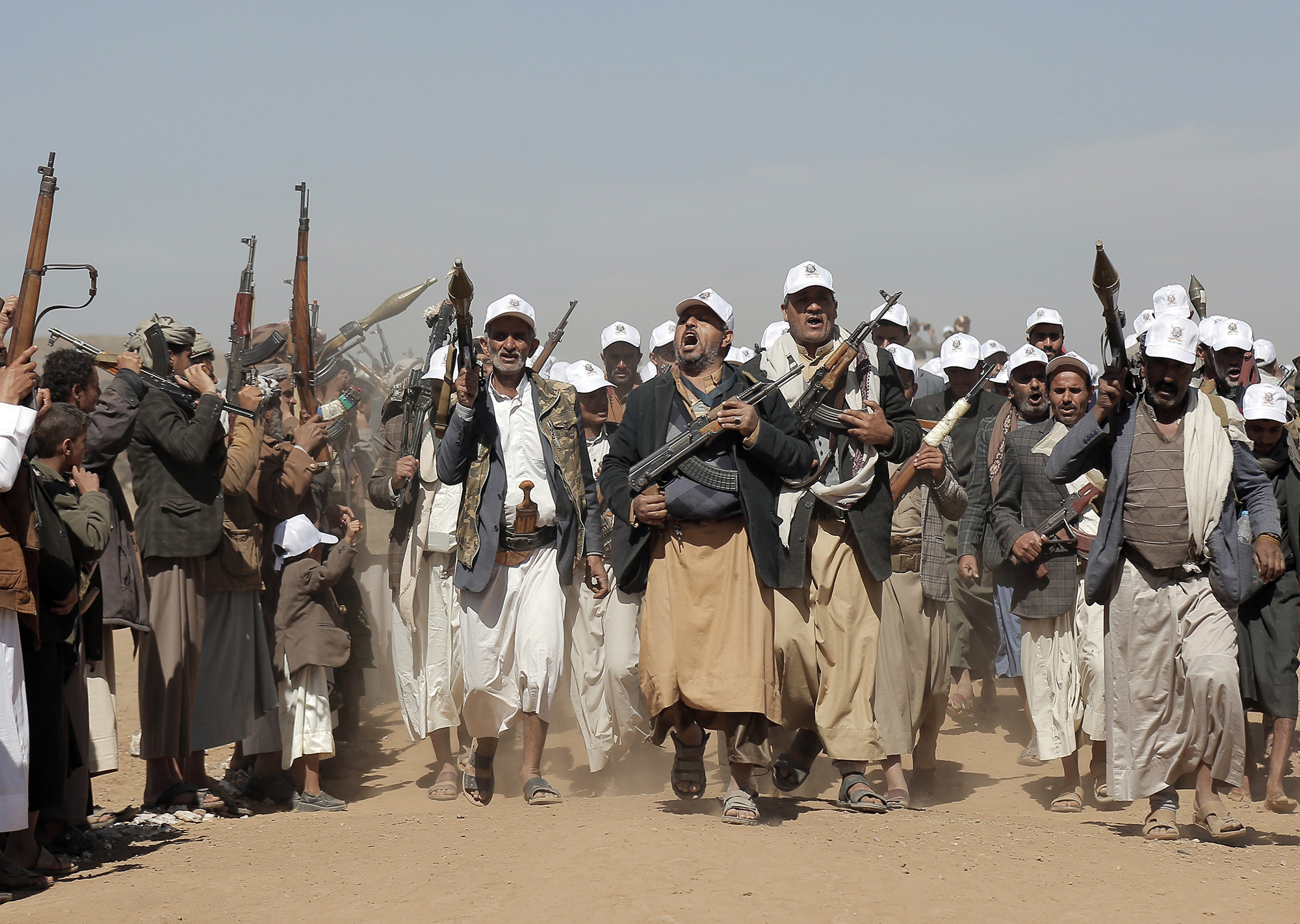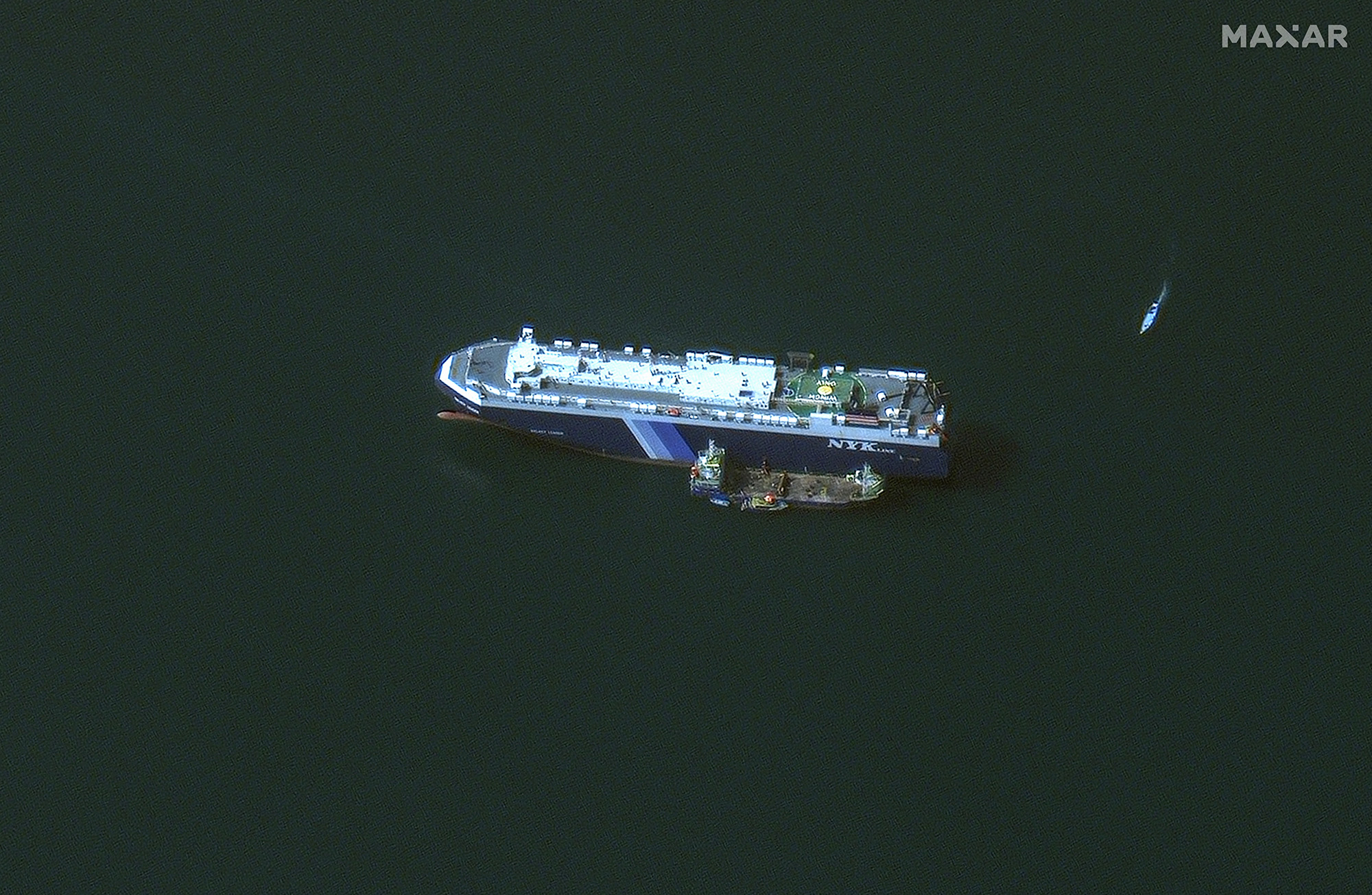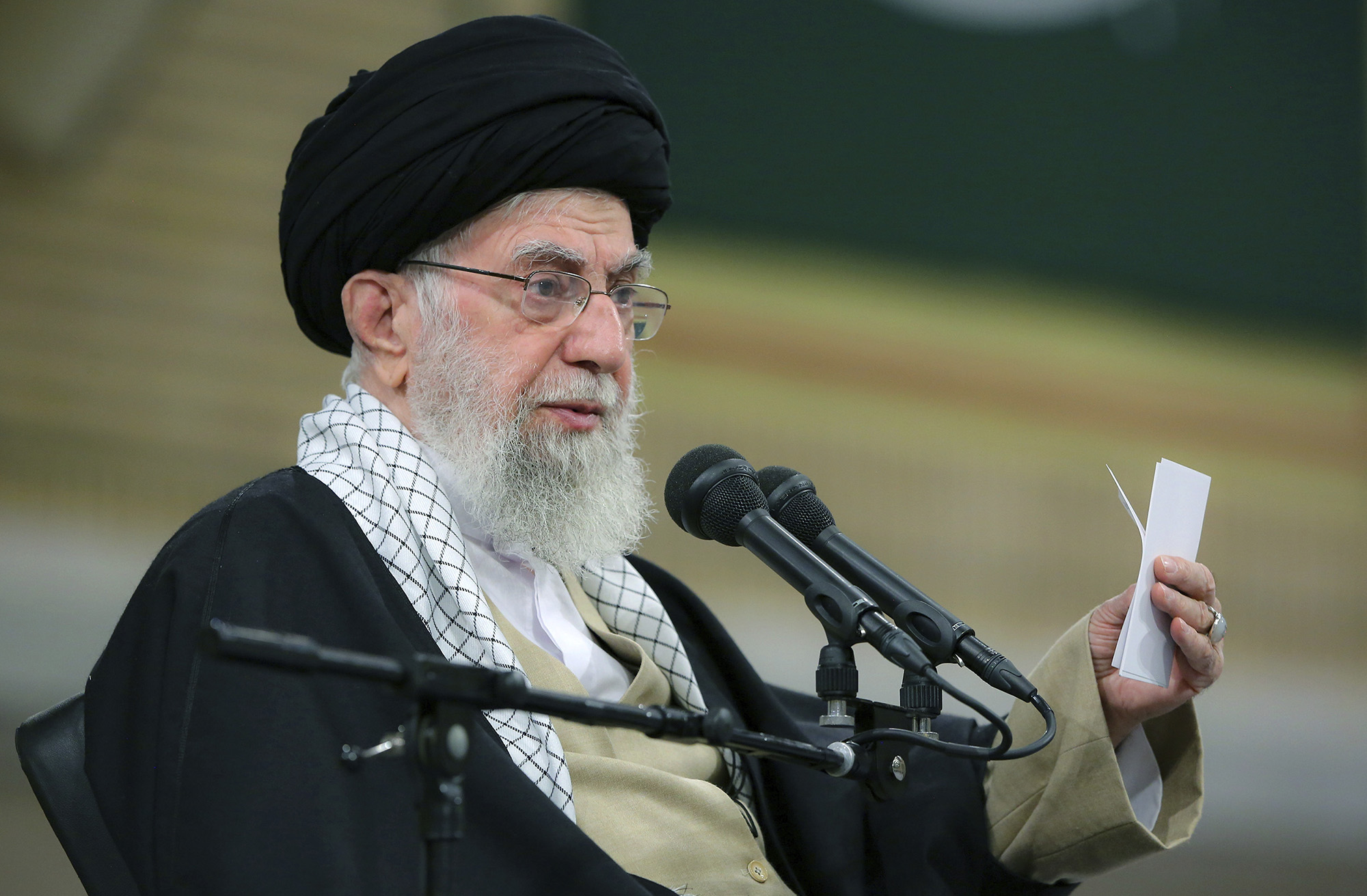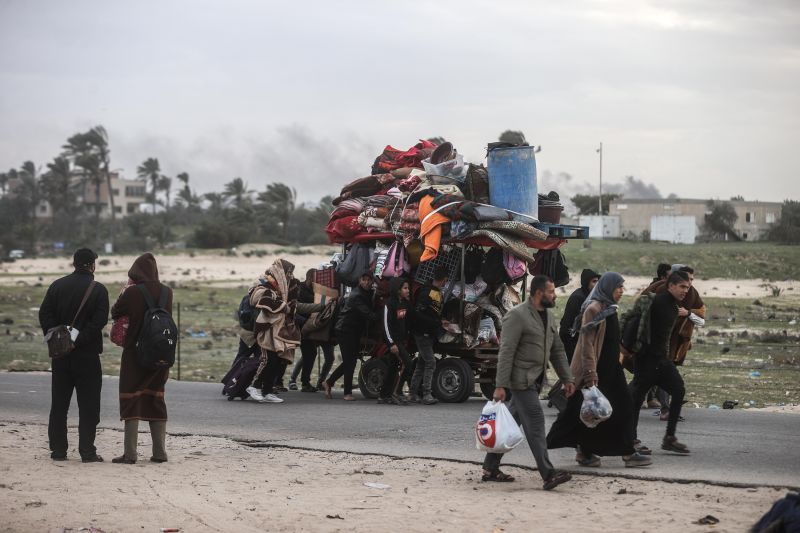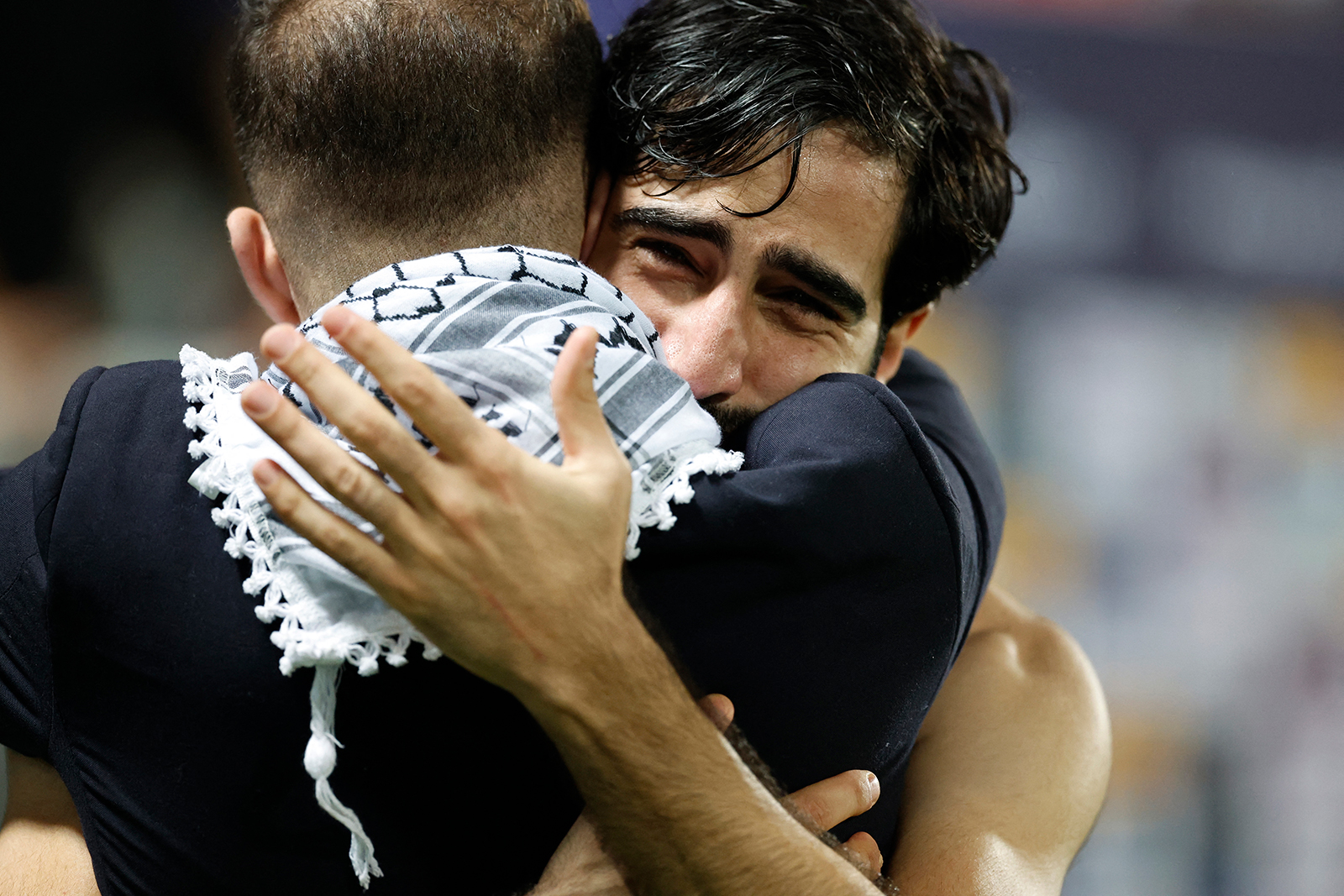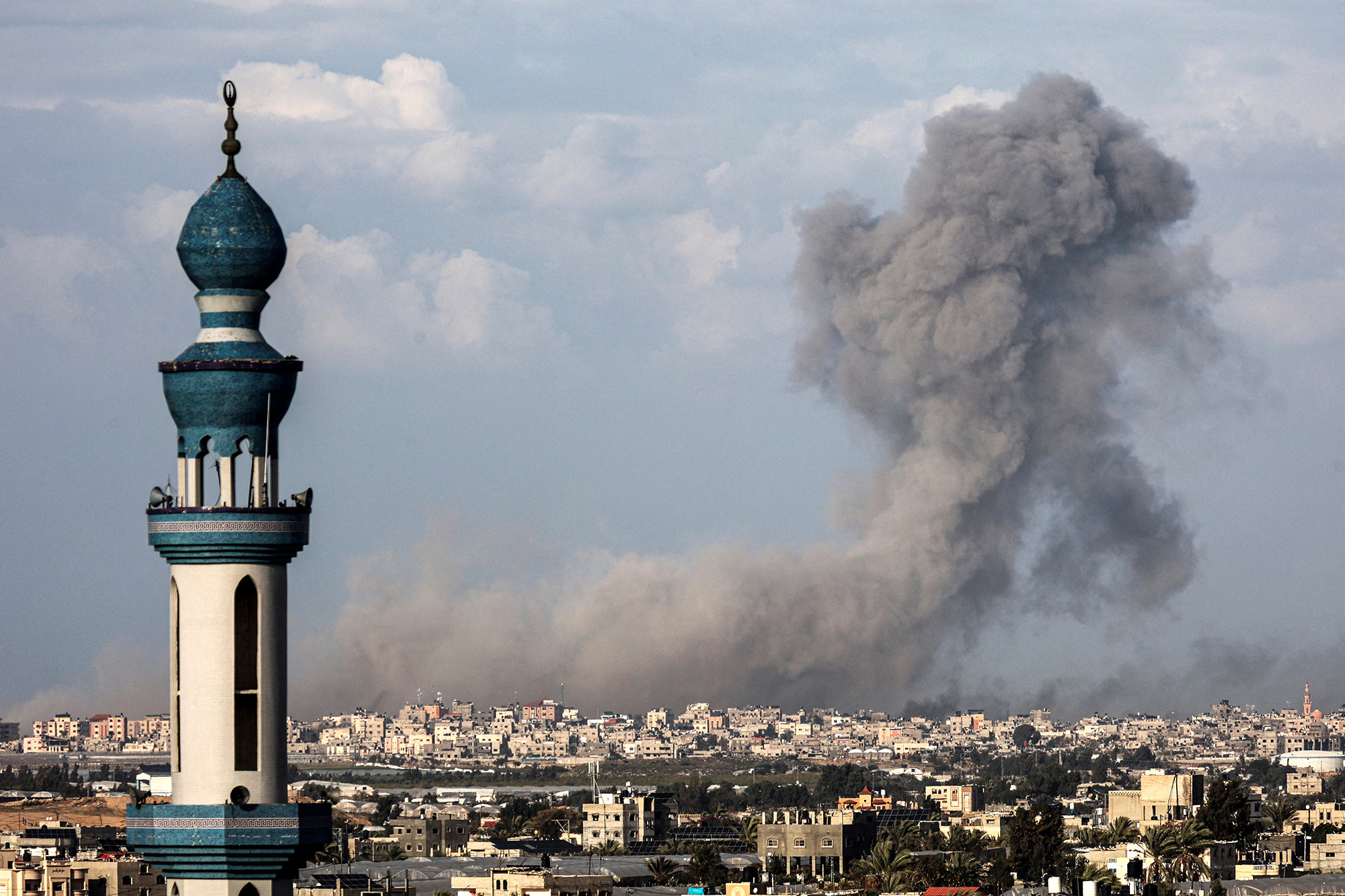
A building sheltering hundreds of displaced people in southern Gaza was hit Wednesday amid intensified Israeli military attacks on Khan Younis, according to the United Nations Relief and Works Agency in Gaza, killing at least nine and injuring 75 others.
“Buildings ablaze and mass casualties. Safe access to and from the center has been denied for two days. People are trapped,” Thomas White, director of affairs for the United Nations Relief and Works Agency for Palestine Refugees in the Near East (UNRWA), said Wednesday on X, formerly Twitter.
White also said that a team from his agency and the World Health Organization were trying to reach the site, but that an agreed-upon route with the Israeli military is "blocked with (an) earth bank."
White said the building shelters 800 people. UNRWA Commissioner-General Philippe Lazzarini said on X that the entire Khan Younis Training Center, one of the largest UNRWA facilities in Gaza, was sheltering 30,000 people, and is clearly marked as a UN site.
Wajih Ajour, who is sheltering in the UNRWA facility, told CNN he could see tanks near the building.
“We are completely surrounded. There are Israeli military tanks just outside the walls of the building. Some people have shrapnel wounds from the fighting in the area, and the building also sustained damage,” Ajour said.
The Israel Defense Forces said Wednesday that it continues to operate in Khan Younis, where it is pursuing "military targets, outposts, infrastructure and command and control centers" and said the operation there will continue for "several days."
CNN has sought comment from the IDF on the fire at the UNRWA shelter.
This post has been updated with more details about the UNWRA facility in Khan Younis.



